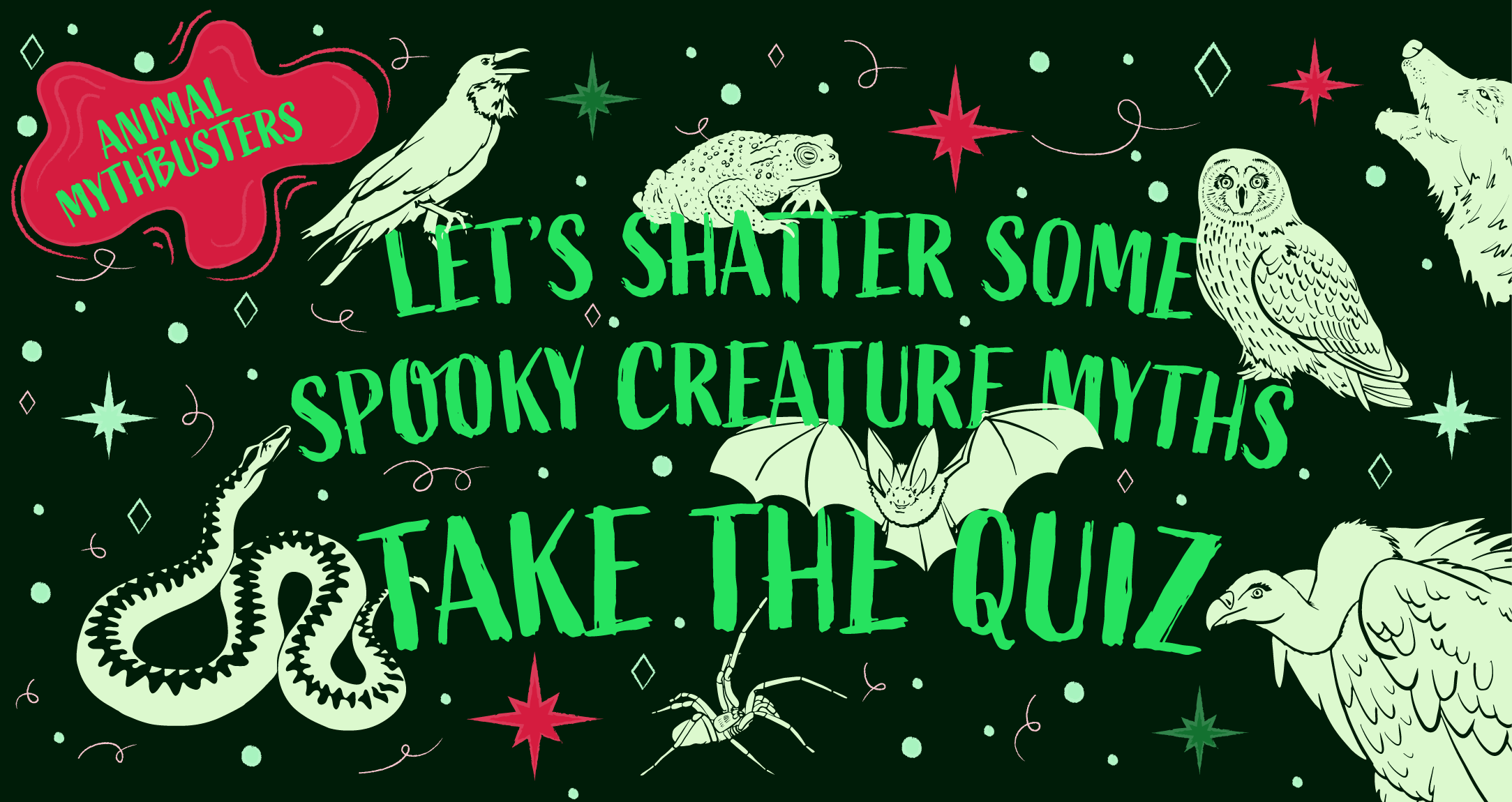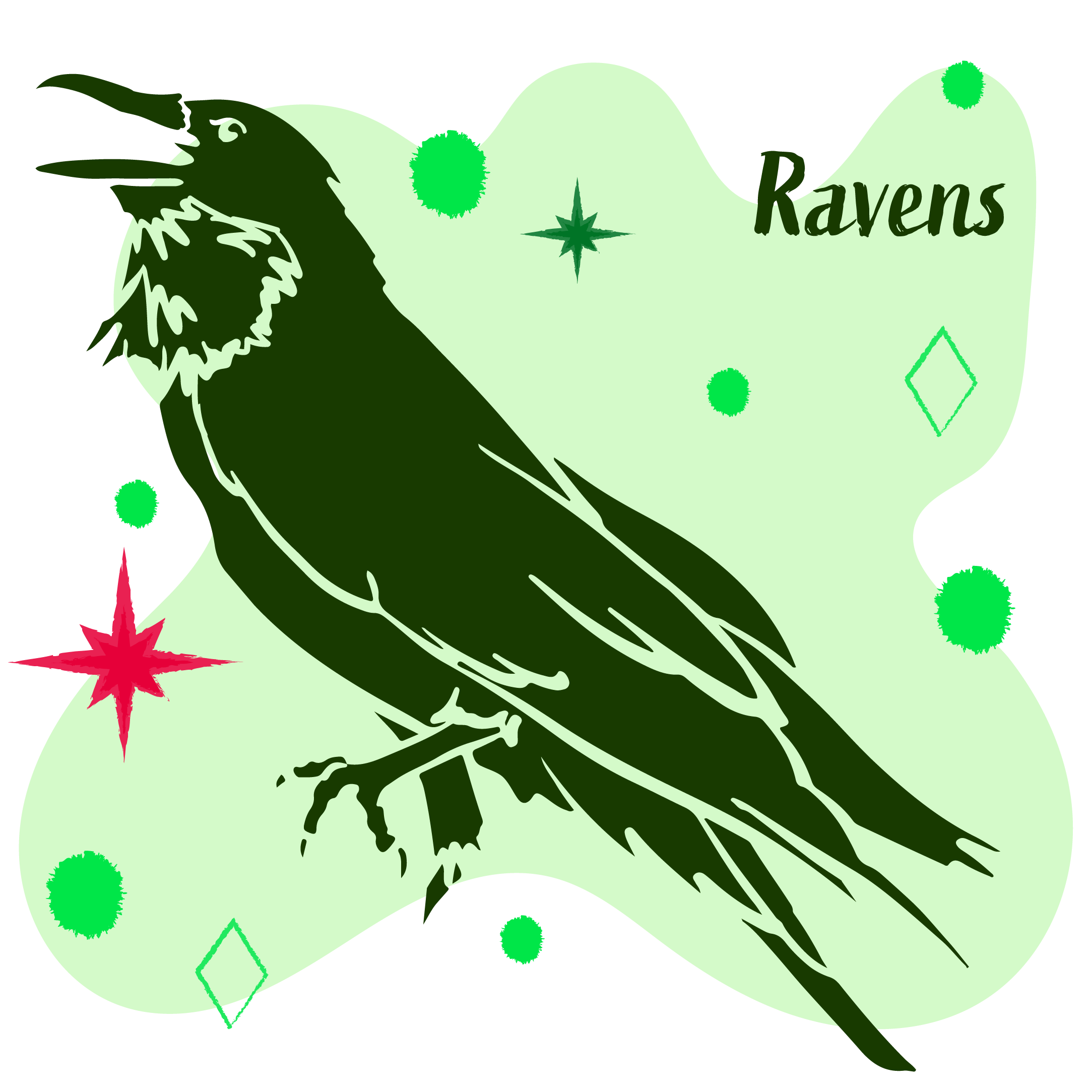Let’s start with an overview
| Name | Common Raven (Corvus corax) |
| Size | 60-68cm (length) |
| Wingspan | 120-150cm |
| Weight | 800-1,500g |
| Diet | Carrion, small mammals, eggs, small birds, invertebrates and insects |
| Habitat | Woodland, Upland, Urban and Suburban, Marine and Intertidal, Farmland |
| Status | Low concern |
| Bird call |
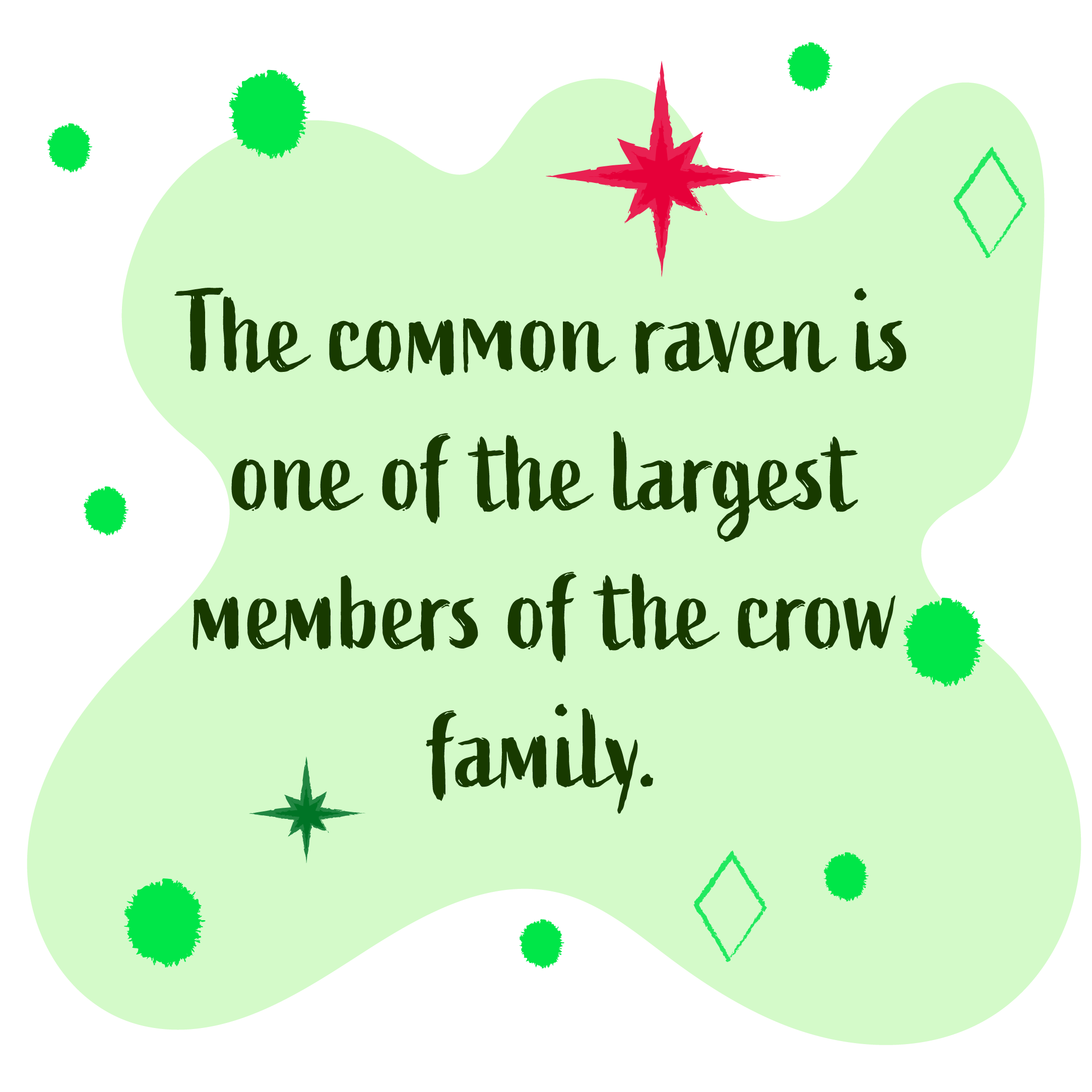
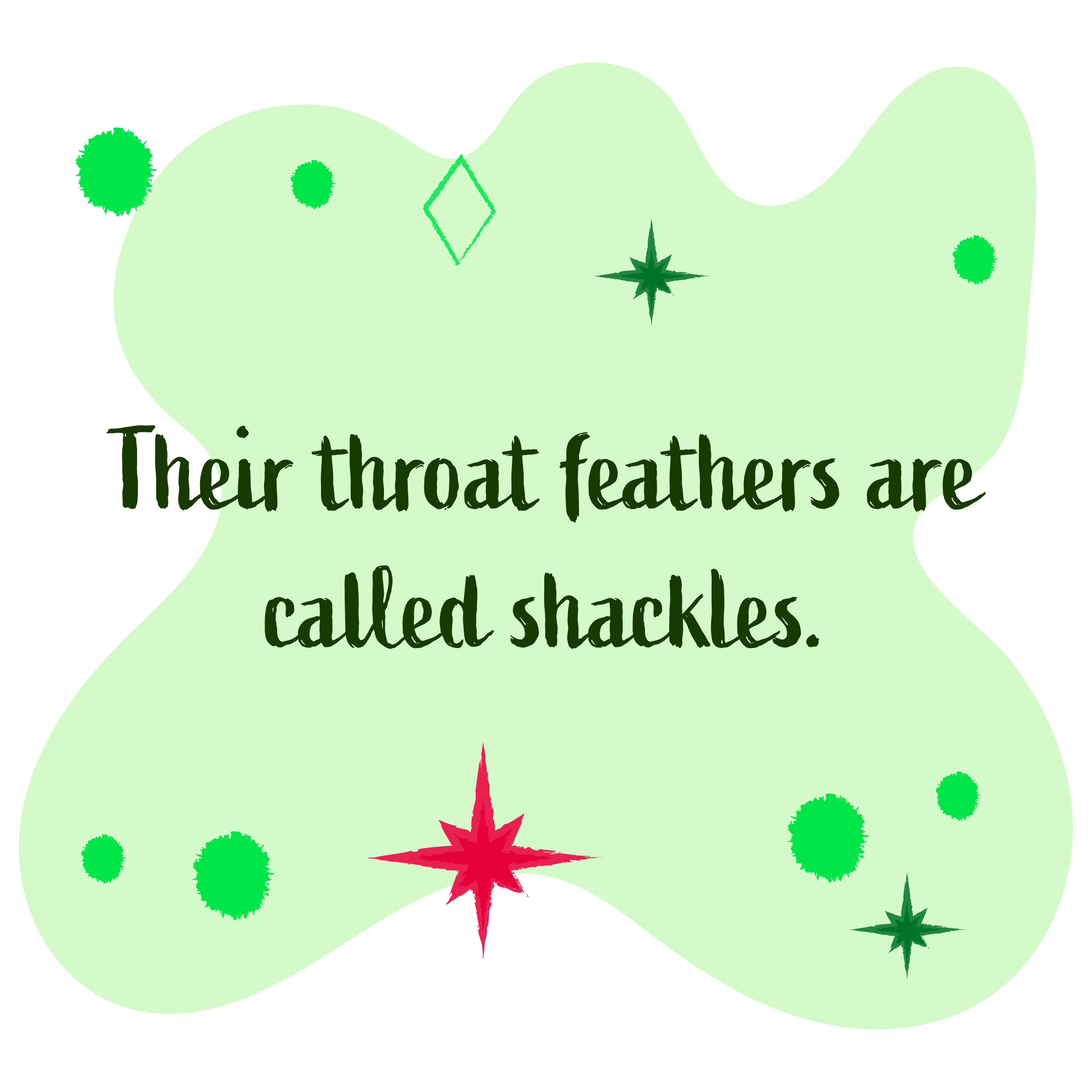

They are really smart!

The crow family (aka corvid) are one of the most intelligent families of birds on the planet. Ravens, like crows are very smart and fantastic at problem solving. I’ve included a short video from Chris Packham’s Animal Einsteins (a really good series I recommend watching) to show you just how good they are.
Talk like a…

Ravens have syrinx’s, which is the equivalent to our voice box, through this they are able to make some amazing sounds. For ravens raised in captivity, they have been able to mimic human sounds like Fable here.
Nesting and mating



Young raven behaviour
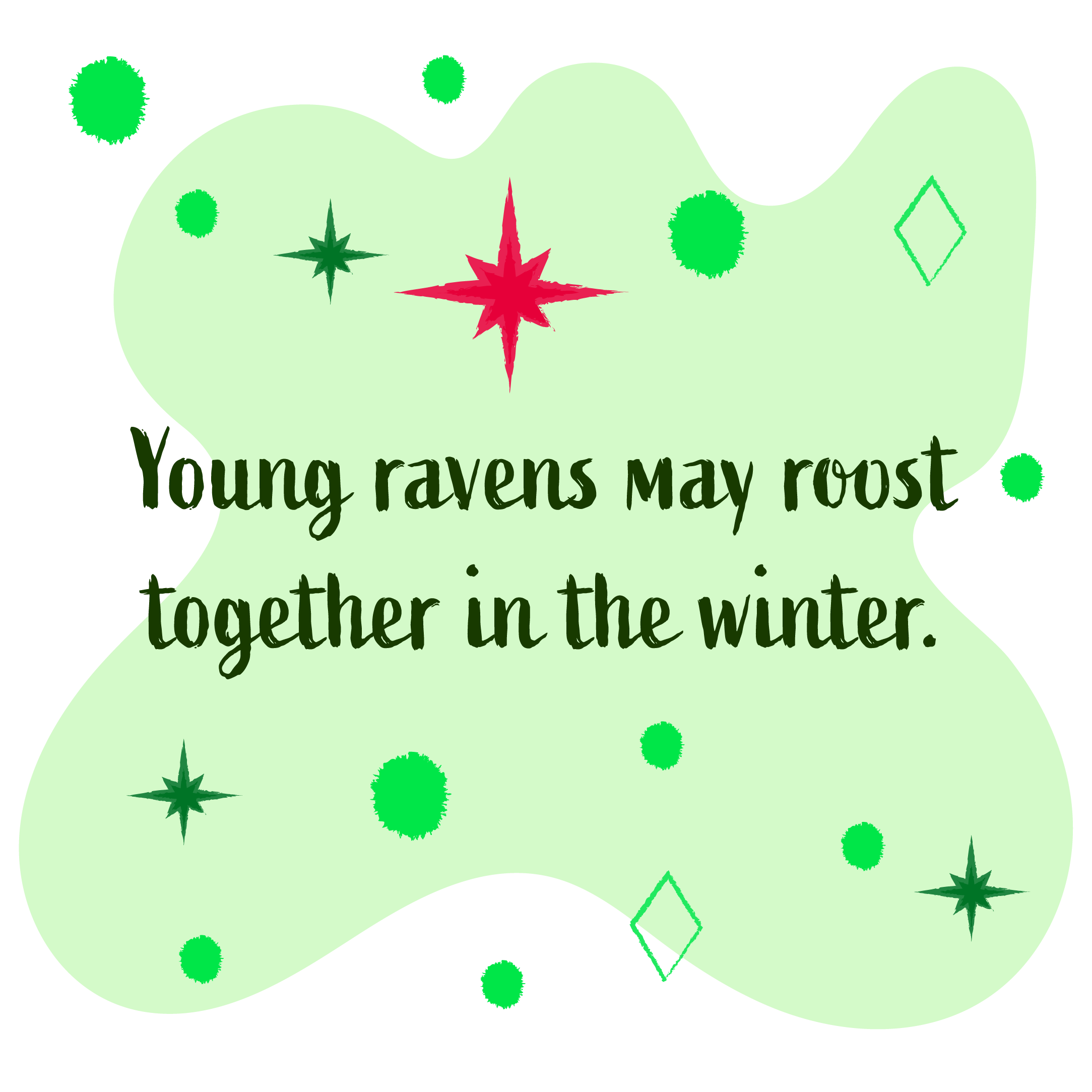

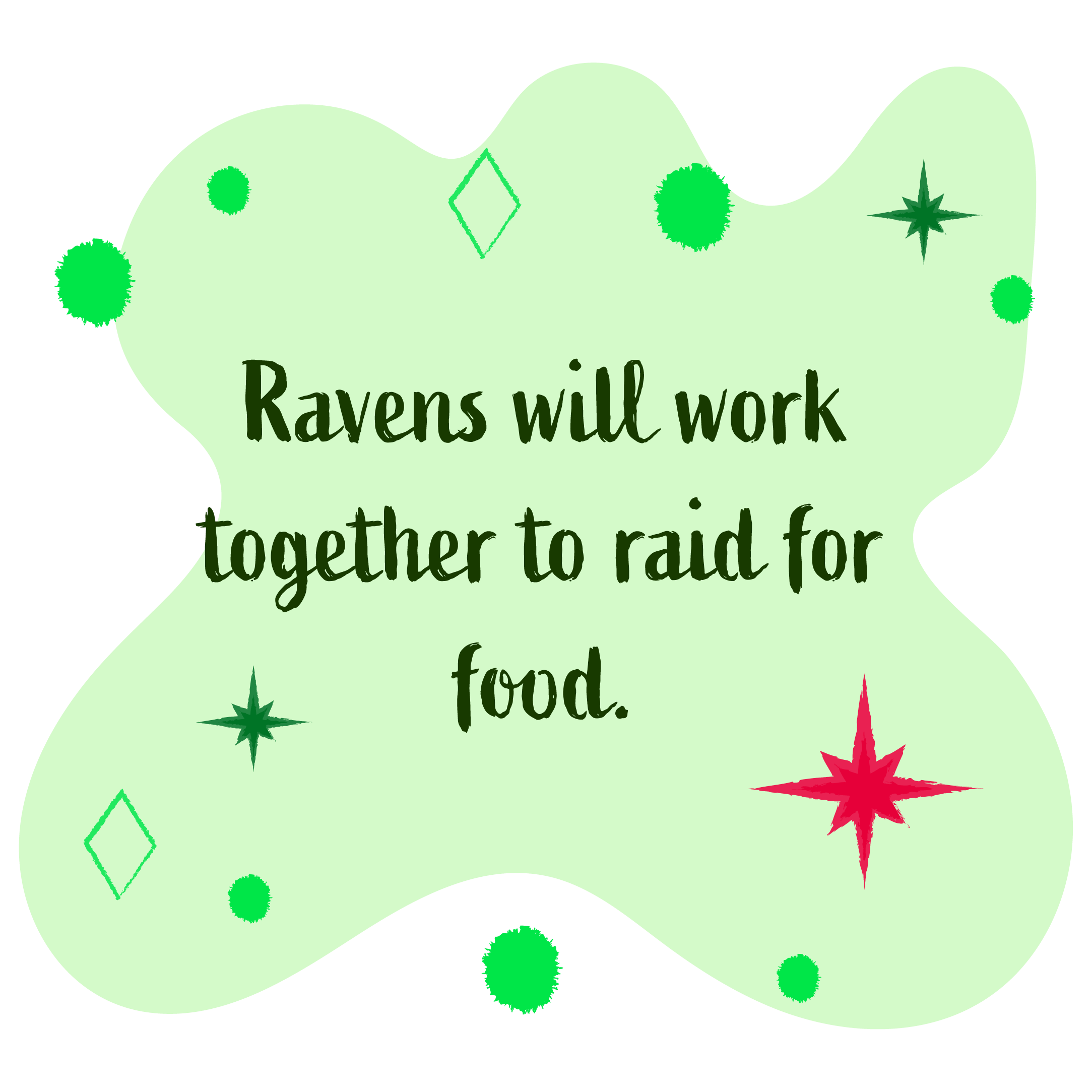
All of these behaviours are learned whilst ravens are young but continue into their adulthood. Ravens are really good team players and continue to enjoy their aerial acrobatics.
Want to learn it all in one video?
Liam Smith shares an overview of this amazing species.
Bonus Facts
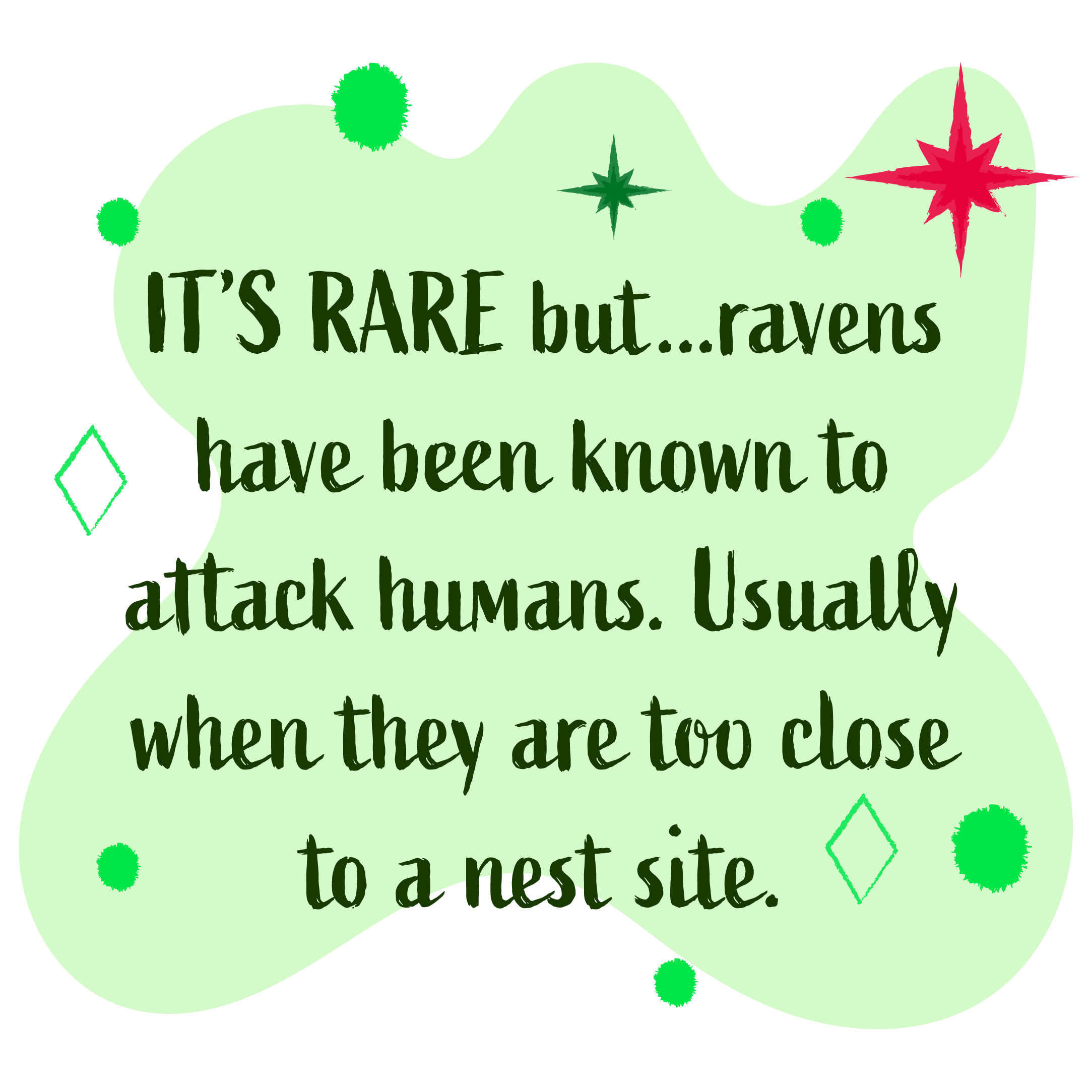
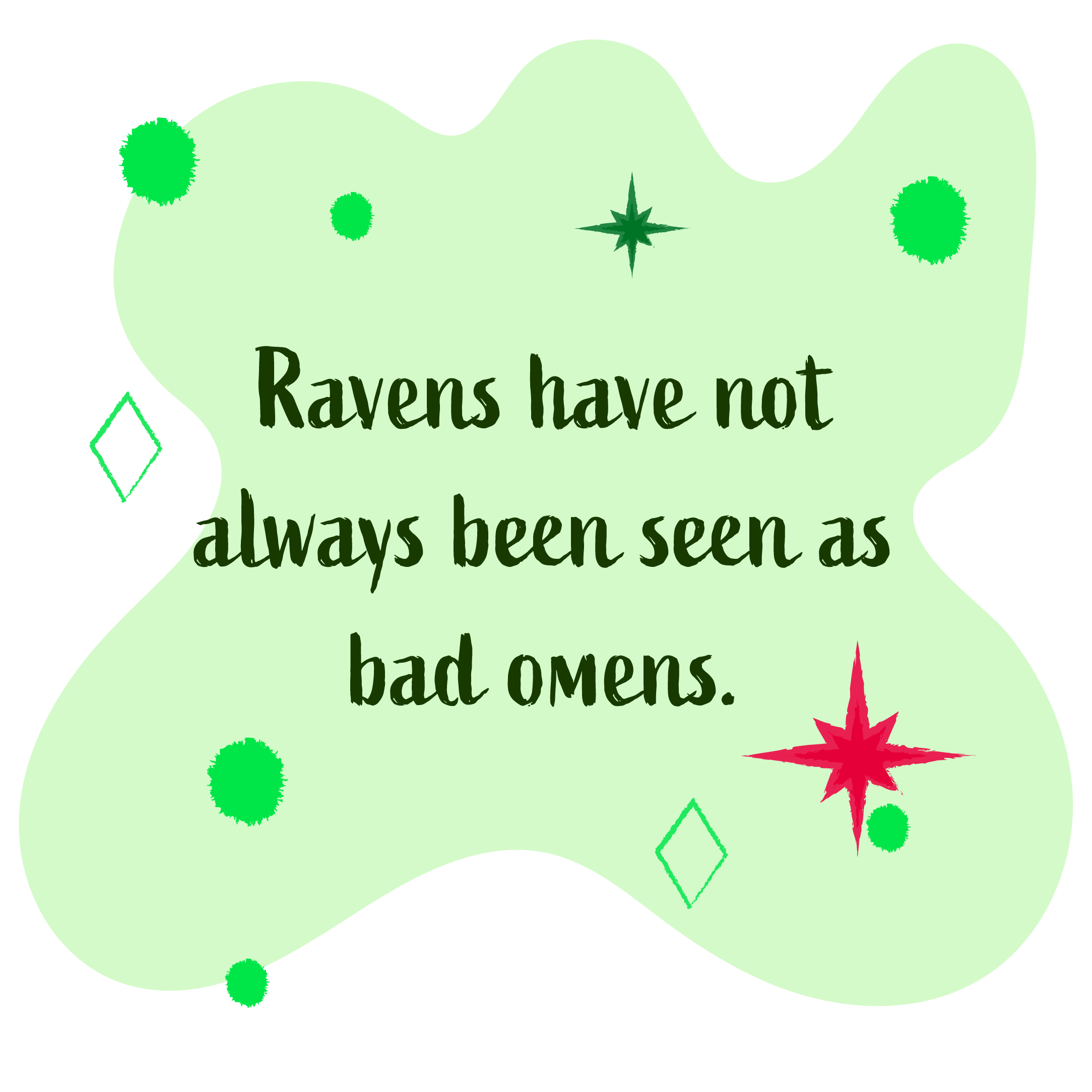
Ready to test your knowledge?
